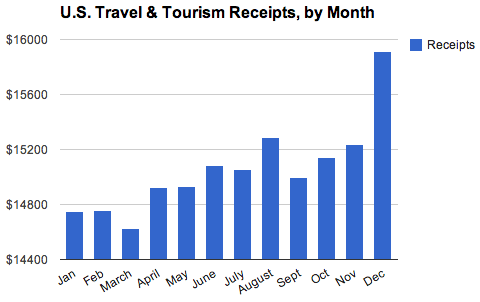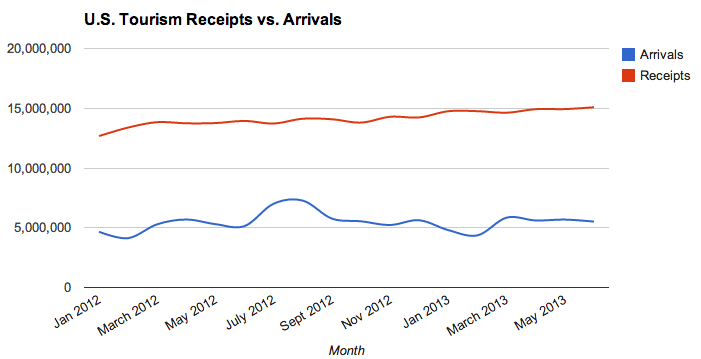Month-by-Month Spending by Foreign Tourists to the U.S. in 2013

Skift Take
Foreign tourists spent more money in the United States in December, almost $16 billion, than other other month in 2013.
The U.S. Department of Commerce reported Tuesday that tourism spending by foreign tourists in the U.S. reached a record $181 billion last year, a 9 percent increase over 2012.
Tourism receipts for 2013 -- which include spend on all travel-related goods, service, and airfares -- were highest in traditional holiday months like August and December.
March was the worst month for the tourism spending as travel slumped between the holiday and summer season.
Numbers in (000)
Source: National Travel & Tourism Office
However, it's not always this way. In 2012, tourists spent the most money in a single month in November. In 2011, it was July.
We asked the National Travel & Tourism Office for insights on why the best month for tourism receipts varies year to year, but it's a metric that they don't track.
"There are so many factors that influence a person's decision to travel and their propensity to spend money that this isn't something we track," explains John Terpening, program manager for the international travel receipts and payments program.
There's no exact correlation between visitation patterns and spending patterns.
The current data set does not distinguish between countries of origin of the visitors. The National Travel & Tourism Office will release data on exact visitation numbers for the second six months of 2013 by April.






